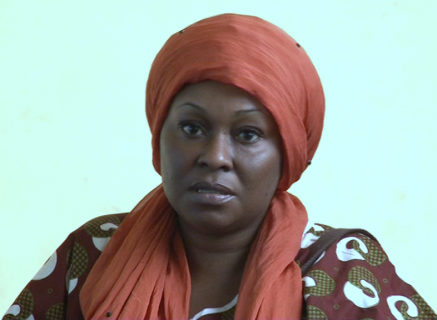WASHINGTON (AFP) – The first-ever daily pill to help prevent against
HIV was approved Monday by US regulators for use in uninfected adults
who are at risk for getting the virus that causes AIDS.
Truvada, made by Gilead Sciences in California, has been on the market since 2004 and was approved by the Food and Drug Administration for a new use as a tool to help ward off HIV in otherwise healthy people, in combination with safe sex and regular testing.
The pill as pre-exposure prophylaxis (PrEP) has been hailed by some AIDS experts as a potent new tool against human immunodeficiency virus, but some health care providers are concerned it could encourage risky sex behavior.
In addition, the regimen is estimated to cost around $14,000 per year, making it out of reach of many.
“Truvada alone should not be used to prevent HIV infection,” said Debra Birnkrant, director of the division of antiviral products at the FDA.
“Truvada as PrEP represents another effective, evidence-based approach that can be added to other prevention methods to help reduce the spread of HIV.”
The FDA said Truvada should be used as “part of a comprehensive HIV prevention strategy that includes other prevention methods, such as safe sex practices, risk reduction counseling, and regular HIV testing.”
Truvada was previously approved as a treatment for people infected with HIV to be used in combination with other antiretroviral drugs.
The decision by the FDA followed the advice of an independent panel in May that supported Truvada for prevention in uninfected people, after clinical trials showed it could lower the risk of HIV in gay men and heterosexual couples.
One study on Truvada, called the iPrEx trial, published in 2010 in the New England Journal of Medicine included 2,499 men who were sexually active with other men but were not infected with the virus that causes AIDS.
Participants were selected at random to take a daily dose of Truvada — a combination of 200 milligrams of emtricitabine and 300 milligrams of tenofovir disoproxil fumarate — or a placebo.
Those in the study who took the drug regularly had almost 73 percent fewer infections. Across the entire study, including those who had not been as diligent in taking Truvada, there were 44 percent fewer infections than in those who took a placebo.
A second study on 4,758 heterosexual couples in which one partner was infected with HIV and the other was not, showed that Truvada reduced the risk of becoming infected by 75 percent compared with a placebo.
Experts have described the results as game-changing and the first demonstration that an already-approved oral drug could decrease the likelihood of HIV infections.
Common side effects were the same as experienced by people with HIV who were taking Truvada, and included diarrhea, nausea, abdominal pain, headache, and weight loss.
However, adherence rates — meaning how often people in the study actually took the drug daily — were low in the study of men who have sex with men, just 30 percent, Birnkrant said.
In the study of heterosexual partners, adherence was much higher, between 80 and 90 percent.
Therefore, the drug label must include special instructions for health care providers on how to counsel potential users of the drug.
The drugmaker must also include a warning that Truvada for PrEP “must only be used by individuals who are confirmed to be HIV-negative prior to prescribing the drug and at least every three months during use.”
Gilead Sciences is also required to collect samples from people who test positive for HIV while taking the drug and analyze them for signs of drug resistance.
As to concerns about whether the pill might boost risky sex practices and lead people to abandon condoms as a first line of protection, Birnkrant said the studies have not shown that so far.
“We don’t really have any strong evidence to show that condoms were not used or that there was a decrease in condom use when Truvada was used,” she told reporters.
The goal of the approval is to eventually cut back on the rate of new infections in the United States, which have stayed steady in recent years at about 50,000 annually, she said.
A key goal of the US strategy against HIV/AIDS, set forth in 2010, is to decrease the number of new infections by 25 percent by 2015.
“The hope is that over time it will decrease the rate of new infections or incidence in the United States.”
Truvada, made by Gilead Sciences in California, has been on the market since 2004 and was approved by the Food and Drug Administration for a new use as a tool to help ward off HIV in otherwise healthy people, in combination with safe sex and regular testing.
The pill as pre-exposure prophylaxis (PrEP) has been hailed by some AIDS experts as a potent new tool against human immunodeficiency virus, but some health care providers are concerned it could encourage risky sex behavior.
In addition, the regimen is estimated to cost around $14,000 per year, making it out of reach of many.
“Truvada alone should not be used to prevent HIV infection,” said Debra Birnkrant, director of the division of antiviral products at the FDA.
“Truvada as PrEP represents another effective, evidence-based approach that can be added to other prevention methods to help reduce the spread of HIV.”
The FDA said Truvada should be used as “part of a comprehensive HIV prevention strategy that includes other prevention methods, such as safe sex practices, risk reduction counseling, and regular HIV testing.”
Truvada was previously approved as a treatment for people infected with HIV to be used in combination with other antiretroviral drugs.
The decision by the FDA followed the advice of an independent panel in May that supported Truvada for prevention in uninfected people, after clinical trials showed it could lower the risk of HIV in gay men and heterosexual couples.
One study on Truvada, called the iPrEx trial, published in 2010 in the New England Journal of Medicine included 2,499 men who were sexually active with other men but were not infected with the virus that causes AIDS.
Participants were selected at random to take a daily dose of Truvada — a combination of 200 milligrams of emtricitabine and 300 milligrams of tenofovir disoproxil fumarate — or a placebo.
Those in the study who took the drug regularly had almost 73 percent fewer infections. Across the entire study, including those who had not been as diligent in taking Truvada, there were 44 percent fewer infections than in those who took a placebo.
A second study on 4,758 heterosexual couples in which one partner was infected with HIV and the other was not, showed that Truvada reduced the risk of becoming infected by 75 percent compared with a placebo.
Experts have described the results as game-changing and the first demonstration that an already-approved oral drug could decrease the likelihood of HIV infections.
Common side effects were the same as experienced by people with HIV who were taking Truvada, and included diarrhea, nausea, abdominal pain, headache, and weight loss.
However, adherence rates — meaning how often people in the study actually took the drug daily — were low in the study of men who have sex with men, just 30 percent, Birnkrant said.
In the study of heterosexual partners, adherence was much higher, between 80 and 90 percent.
Therefore, the drug label must include special instructions for health care providers on how to counsel potential users of the drug.
The drugmaker must also include a warning that Truvada for PrEP “must only be used by individuals who are confirmed to be HIV-negative prior to prescribing the drug and at least every three months during use.”
Gilead Sciences is also required to collect samples from people who test positive for HIV while taking the drug and analyze them for signs of drug resistance.
As to concerns about whether the pill might boost risky sex practices and lead people to abandon condoms as a first line of protection, Birnkrant said the studies have not shown that so far.
“We don’t really have any strong evidence to show that condoms were not used or that there was a decrease in condom use when Truvada was used,” she told reporters.
The goal of the approval is to eventually cut back on the rate of new infections in the United States, which have stayed steady in recent years at about 50,000 annually, she said.
A key goal of the US strategy against HIV/AIDS, set forth in 2010, is to decrease the number of new infections by 25 percent by 2015.
“The hope is that over time it will decrease the rate of new infections or incidence in the United States.”





















